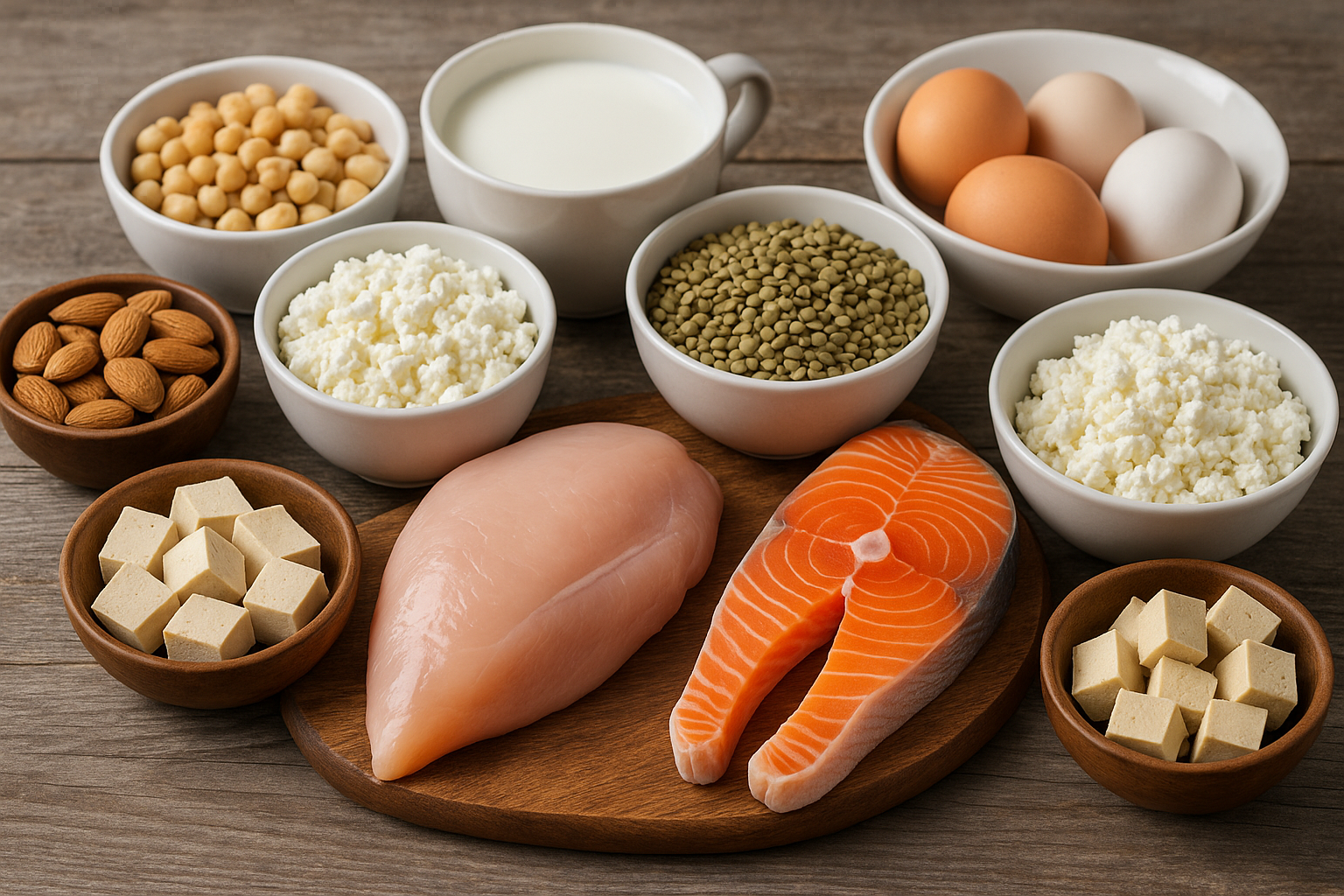Protein is often described as the building block of life – and for good reason. It supports muscle repair, helps keep you fuller for longer, and plays a role in everything from hormone production to healthy skin and hair. But one of the most common questions people ask is: how much protein do you actually need each day, and what are the best ways to get it?
Whether you’re an athlete, someone who’s simply trying to stay active, or just interested in improving your nutrition, understanding protein requirements can make a big difference in your overall health.
How Much Protein Do You Really Need?
Your protein needs depend on a few factors, including your age, weight, activity level, and health goals.
- General adults: The average adult needs about 0.8 grams of protein per kilogram of body weight per day. For example, if you weigh 70kg, that’s around 56g of protein daily.
- Active individuals and athletes: If you exercise regularly or train at higher intensities, your needs may increase to 1.2–2.0 grams per kilogram of body weight. This higher intake supports muscle repair and growth.
- Older adults: As we age, our bodies may need more protein to maintain muscle mass and strength. Experts often recommend 1.0–1.2 grams per kilogram for older adults.
It’s worth noting that exceeding these amounts won’t necessarily mean “more muscle” unless combined with the right type of training. Instead, balance is key.
Best Sources of Protein
Protein is widely available from both animal and plant-based sources. The right choice for you will depend on your diet preferences, lifestyle, and health goals.
Animal-based sources
- Lean meats like chicken, turkey, and beef
- Fish and seafood
- Eggs
- Dairy products like Greek yoghurt, milk, and cheese
Plant-based sources
- Legumes such as beans, lentils, and chickpeas
- Nuts and seeds
- Soy products like tofu and tempeh
- Wholegrains such as quinoa and brown rice
Protein Supplements and Alternatives
While it’s always best to focus on whole food sources first, supplements can be a practical way to meet your daily requirements – particularly for people with busy lifestyles or higher protein demands. Powders and shakes are the most common, but there are also convenient options like ready-to-drink protein beverages. For instance, many people are now exploring the benefits of protein water as a refreshing, low-calorie way to stay hydrated while boosting protein intake.
These alternatives can help you top up your daily protein levels without feeling heavy or relying solely on meals.
Practical Tips to Meet Your Protein Needs
- Spread your intake across the day: Aim to include a source of protein with each meal and snack to keep your body fuelled.
- Plan ahead: Meal prepping can make it easier to balance your protein intake without relying on last-minute choices.
- Mix it up: Rotate between animal and plant-based sources to ensure variety and avoid getting stuck in a routine.
- Think beyond the gym: Protein isn’t just for athletes – it’s vital for anyone wanting to maintain strength, manage weight, and support overall health.
The right amount of protein each day isn’t one-size-fits-all
By understanding your individual needs and incorporating a variety of sources, you’ll be able to fuel your body effectively, support recovery, and maintain long-term health. Whether you’re enjoying a protein-rich meal, snacking on nuts, or adding a light supplement to your routine, hitting your protein goals can be simple, sustainable, and even enjoyable.


































